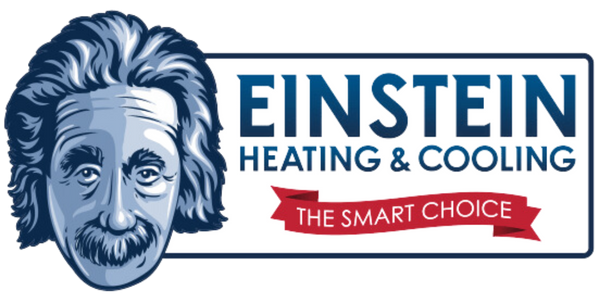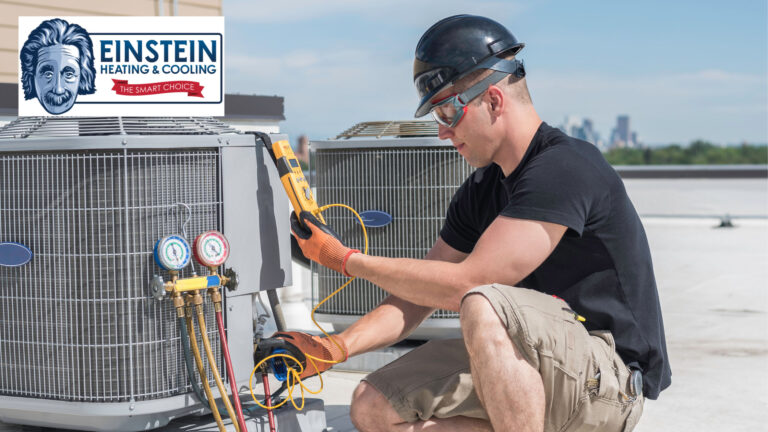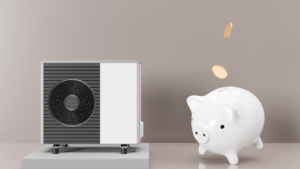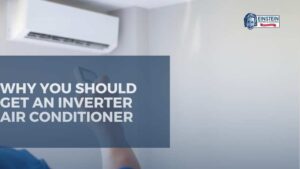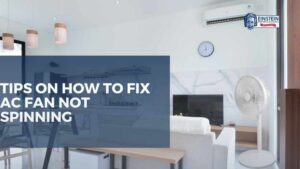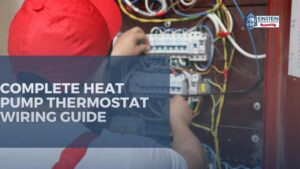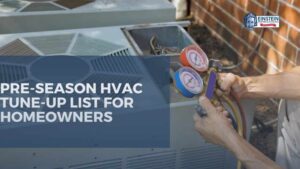The HVAC system is an essential component of your home, especially in Phoenix, where temperatures can soar during the summer months. To keep your home comfortable and energy-efficient, it’s important to maintain your HVAC system and ensure that it’s running at its maximum efficiency. In this blog post, we’ll provide tips and tricks to help you maximize your Phoenix HVAC system’s efficiency.
- Schedule Regular Maintenance
Scheduling regular maintenance for your HVAC system is essential for its optimal performance and longevity. By arranging for professional maintenance visits, you can prevent unexpected breakdowns and ensure that your system operates efficiently.
During a maintenance visit, an HVAC technician will conduct a thorough inspection of your system. They will check for any potential issues, such as leaks, worn-out parts, or signs of damage. By identifying and addressing these problems early on, you can avoid more costly repairs down the line.
The technician will also clean the coils and other components of your HVAC system. Over time, dirt, dust, and debris can accumulate on the coils, reducing their efficiency and affecting the overall performance of your system. By cleaning the coils, the technician will help your system operate at its peak efficiency, leading to better energy savings and enhanced comfort.
Additionally, regular maintenance visits provide an opportunity for the technician to replace any worn-out parts or make necessary adjustments. This ensures that your system is in good working condition and minimizes the risk of unexpected failures or disruptions in your heating or cooling.
Overall, scheduling regular maintenance for your HVAC system is a proactive approach to keeping it in optimal condition. By investing in maintenance, you can prevent major issues, extend the lifespan of your system, and enjoy reliable and efficient performance year-round.
.
- Replace Your Air Filters
Regularly replacing your air filters is crucial for maintaining the efficiency and performance of your HVAC system. Dirty air filters can restrict airflow, forcing your system to work harder to achieve the desired temperature. This increased workload can result in higher energy consumption and elevated utility bills.
To maximize your system’s efficiency, it is recommended to replace your air filters every three months. However, if you have pets or suffer from allergies, more frequent filter replacements may be necessary. Clogged or dirty filters not only impede airflow but also allow dust, pollen, and other allergens to circulate in your home, compromising indoor air quality.
By regularly replacing your air filters, you can ensure proper airflow and prevent the accumulation of dust and allergens in your HVAC system. This not only helps to maintain the efficiency of your system but also contributes to a cleaner and healthier living environment.
Remember, clean air filters are essential for optimizing the performance of your HVAC system, improving energy efficiency, and promoting better indoor air quality.
- Install a Programmable Thermostat
Installing a programmable thermostat is a wise investment that can lead to significant energy savings and reduced utility bills. With a programmable thermostat, you can set temperature schedules that align with your daily routine.
By programming the thermostat to adjust the temperature while you’re away from home or asleep, you can avoid wasting energy on heating or cooling when it’s not necessary. For instance, you can program it to lower the temperature during the day when you’re at work and raise it before you return home. This way, you can enjoy a comfortable environment without consuming unnecessary energy.
The ability to customize temperature settings based on your schedule helps optimize the operation of your HVAC system, reducing energy consumption and lowering your utility bills. Studies suggest that using a programmable thermostat can result in energy savings of up to 10%.
Furthermore, programmable thermostats often offer additional features such as remote control and smart connectivity, allowing you to adjust settings from anywhere using a smartphone app or voice commands. This flexibility enhances convenience and control over your home’s temperature settings.
Installing a programmable thermostat enables you to save energy and money by automatically adjusting the temperature of your home according to your schedule. By optimizing your HVAC system’s operation and reducing unnecessary energy consumption, a programmable thermostat is an effective tool for promoting energy efficiency and reducing your carbon footprint.
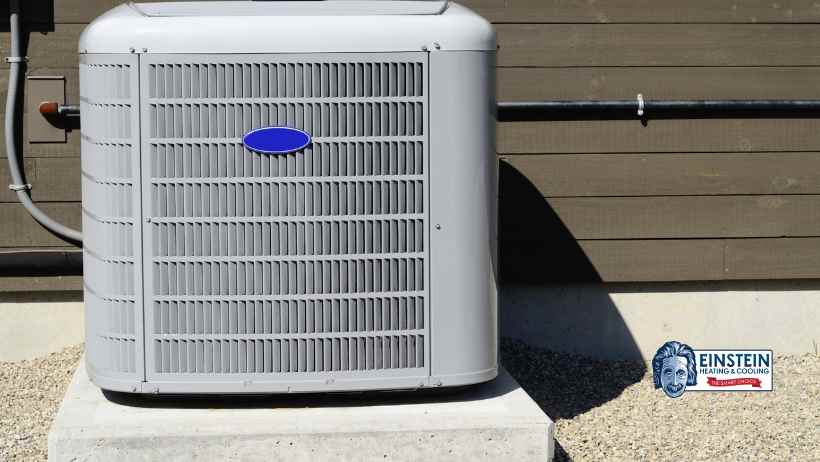
- Seal Air Leaks
Sealing air leaks in your home is a simple yet effective way to improve the efficiency of your HVAC system. Air leaks around windows, doors, and other openings can allow conditioned air to escape and outdoor air to enter, resulting in energy loss and making your HVAC system work harder to maintain a comfortable temperature.
To maximize the efficiency of your HVAC system, it’s important to identify and seal any air leaks. Use caulking or weatherstripping to seal gaps and cracks around windows and doors. This will help prevent drafts and the exchange of air between the inside and outside of your home.
By sealing air leaks, you can minimize the strain on your HVAC system and reduce energy waste. Your HVAC system will operate more efficiently, as it won’t have to compensate for the loss of conditioned air. This can lead to lower energy consumption and reduced utility bills.
In addition to energy savings, sealing air leaks can improve overall comfort by creating a more consistent indoor temperature and reducing drafts. It can also contribute to better indoor air quality by preventing the entry of outdoor pollutants and allergens.
In conclusion, taking the time to seal air leaks in your home can have a significant impact on the efficiency of your HVAC system. By reducing energy loss and ensuring better temperature control, you can save energy, lower utility bills, and create a more comfortable and efficient living environment.
- Insulate Your Home
Insulating your home is a crucial step in improving the energy efficiency of your HVAC system. Effective insulation helps keep cool air inside during the summer and prevents warm air from entering during the winter. By reducing the transfer of heat between the interior and exterior of your home, insulation can significantly decrease the workload on your HVAC system.
Adding insulation to key areas such as the attic, walls, and floors can have a significant impact on energy consumption and utility bills. Insulation acts as a barrier, reducing heat gain or loss and maintaining a more consistent indoor temperature. This means your HVAC system won’t have to work as hard to keep your home comfortable, leading to increased efficiency and potential energy savings.
Insulating your home also improves overall comfort by reducing drafts and temperature fluctuations. It creates a more stable indoor environment, allowing your HVAC system to operate more effectively and efficiently.
In addition to energy savings, insulation can contribute to a quieter and more peaceful living space by reducing the transmission of outdoor noise.
In summary, proper insulation plays a vital role in optimizing the efficiency of your HVAC system. By reducing heat transfer, insulation helps maintain a comfortable indoor environment, lower energy consumption, and decrease utility bills. It’s a worthwhile investment that can provide long-term benefits in terms of energy efficiency and overall comfort.
- Use Ceiling Fans
Using ceiling fans is a practical and energy-efficient way to complement your HVAC system and enhance its efficiency. Ceiling fans help circulate the air in a room, creating a gentle breeze that can make you feel cooler. By using ceiling fans in conjunction with your HVAC system, you can increase comfort while reducing energy consumption.
When a ceiling fan is operating, it creates a wind-chill effect, which makes you feel cooler without changing the actual room temperature. This allows you to raise the thermostat setting on your HVAC system while still feeling comfortable. By relying on the ceiling fan for cooling, you can reduce the workload on your HVAC system, potentially leading to energy savings.
However, it’s important to remember that ceiling fans cool people, not rooms. Therefore, it’s crucial to turn off ceiling fans when you leave a room to avoid wasting energy. Ceiling fans don’t actually lower the temperature in a room, so running them when no one is present serves no purpose and only consumes unnecessary energy.
In summary, using ceiling fans can increase the efficiency of your HVAC system by circulating air and creating a cooling effect. By using ceiling fans strategically and turning them off when not needed, you can improve comfort, potentially reduce energy consumption, and make your home more energy-efficient.
- Upgrade to a High-Efficiency HVAC System
Upgrading to a high-efficiency HVAC system can significantly improve the energy efficiency of your home. Older HVAC systems, typically over 10 years old, tend to be less efficient compared to newer models. By upgrading to a high-efficiency system, you can reduce energy consumption and enjoy long-term cost savings.
High-efficiency HVAC systems are designed to run more efficiently, using advanced technologies that minimize energy waste. These systems often feature variable-speed motors, advanced heat exchangers, and improved insulation, among other energy-saving components. They are designed to provide better temperature control, optimize energy usage, and reduce operating costs.
Although the upfront cost of upgrading to a high-efficiency system may be higher, the long-term benefits make it a worthwhile investment. By reducing energy consumption, you can experience significant savings on your energy bills over time. The exact amount of savings will depend on factors such as climate, usage patterns, and system efficiency.
Additionally, upgrading to a high-efficiency HVAC system may also qualify you for incentives, rebates, or tax credits offered by local or federal programs, further offsetting the initial investment.
Upgrading to a high-efficiency HVAC system improves the overall efficiency of your home and can lead to significant energy savings. While the initial cost may be higher, the long-term benefits, including reduced energy bills and potential incentives, make it a cost-effective choice for homeowners concerned about energy efficiency and sustainable living.
In conclusion, looking for “Maximizing Your Phoenix HVAC System’s Efficiency: Tips and Tricks” can help you save money on energy bills while keeping your home comfortable. Regular maintenance, replacing air filters, installing a programmable thermostat, sealing air leaks, insulating your home, using ceiling fans, and upgrading to a high-efficiency HVAC system are some of the ways to improve your system’s efficiency. Consult with a professional HVAC technician from Einstein Heating and Cooling to learn more about how you can maximize the efficiency of your HVAC system.
